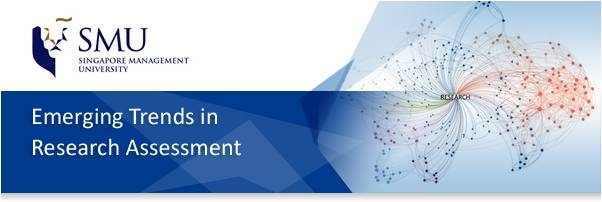Location
SMU Administration Building, Function Room
Start Date
3-9-2012 9:40 AM
End Date
3-9-2012 10:20 AM
Included in
Sep 3rd, 9:40 AM
Sep 3rd, 10:20 AM
Bibliometrics, Research Performance Evaluation, and Beyond: Towards Actionable Intelligence for Science Administrators, Policymakers, and Funders
SMU Administration Building, Function Room




Comments
Abstract
Over the last four decades, bibliometric analysis for research assessment has moved from rejection to acceptance. Current uses of these metrics, however, can be helpful or destructive. Evaluation has its place within the realm of accountability for the use of public and private funding, as well as for research portfolio review and strategic planning. On the other hand, when the measures become the goal in and of themselves, researcher behavior may change leading to unintended negative consequences. Mere scoring or ranking is a low-level, one-dimensional application of rich and multivariate publication and citation data. These data, when exploited in many ways and from many angles, can contribute to a much deeper understanding of the activity, direction, and dynamics of contemporary science. That, when combined with peer review, adds an extra depth of understanding and informs decisions, usually hard ones. Beyond evaluation, bibliometric data can describe fruitful collaborations, intensive exchanges, and extreme distributions. Typically, the nature of the distributions suggests a radical approach to the use of research resources, but this must be balanced by social and political necessities as well as consideration for seeding the ground for the next generation. Visualization tools are beginning to appear but are today not yet adequate for practical use by science administrators, policymakers, and funders. Actionable intelligence is what they need -- to make difficult choices, optimize resources, and build a strong science base for the future.